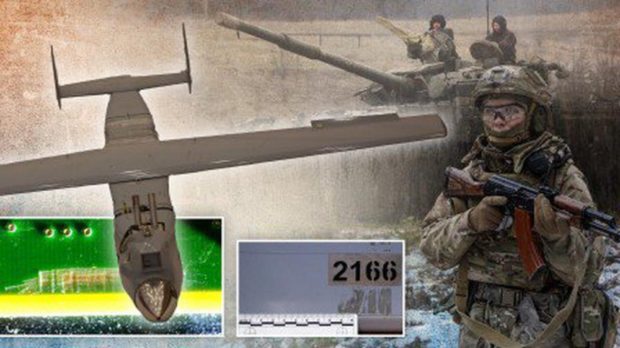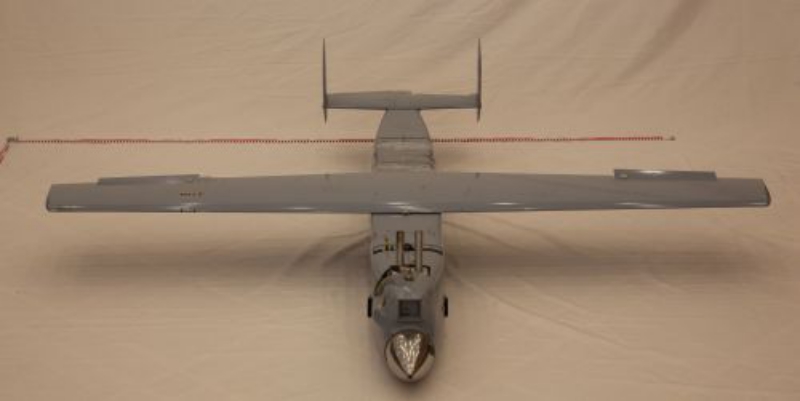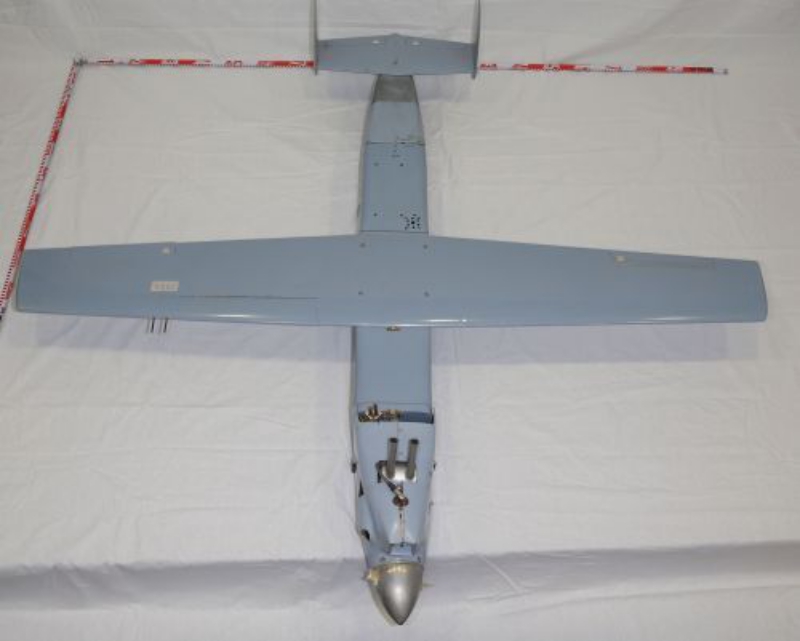British parts were reportedly found in Russian-made spy drones captured by Ukrainian and Lithuanian troops. The part was discovered by researchers to be one of the European kits found on unmanned aerial vehicles (UAVs) deployed in Ukraine and neighboring countries during a conflict in the Donbas region of eastern Ukraine.
A three-year study by Conflict Armament Research (CAR), funded by the European Union and the German government, suggests that the Kremlin is using opaque supply lines to circumvent EU and US sanctions and cannot buy military electronic components. The study tracked the flow of weapons and military vehicles to Russian-backed separatists in Donbas, who have fought the Ukrainian army since 2014.
One of the drones with British-made parts was captured by Ukrainian defense and security forces near Mariupol, a coastal city in the Donetsk region where the rebels founded a self-proclaimed republic. An autopsy of the device by Conflict Armament Research (CAR) found an inertial sensor, a type of measuring unit, manufactured by a British company named Silicon Sensing System in the report. There is no suggestion that the company violated the law or knew that its parts would be used for military purposes.
The UAV, which went down on February 8, 2017, was investigated by researchers who recorded the supplies used in the conflict between Ukrainian troops and Russian-backed separatists in Donbas.
According to CAR, another part manufactured by the company was found in a drone that crashed in Lithuania in October 2016.
The project is underway when the United States deploys an additional 3,000 troops in Eastern Europe and NATO allies send defense weapons and a small number of personnel to Ukraine.
The report states that Silicon Sensing Systems, which provided information to CAR, sold the DMU02 unit to Radiant-Elcom CJSC (now known as Radiant Group LLC, a Russian private electronics distributor).
According to researchers, Radiant said the end customer is a company that serves “various educational institutions” in the country.
The final destination turned out to be ANO “POKSI”, which manufactures aerial surveillance systems for the Russian Ministry of Defense.
The company was licensed by the United States in 2016 for supporting the cyber operations of Russian military intelligence agencies.
The unit of measurement provided by a British company was sold prior to August 1, 2014, when the EU and the United States banned the trading of weapons or “related materials” with Russian companies. Another unit created by a Plymouth-based company was found in a drone recovered by Lithuanian authorities.
The report states that it was likely sold to Radiant-Elcom between 2014 and 2015. None of the commercial parts dating back to the UK company are on the UK’s Strategic Export Control List.
Another electrical component found in a drone recovered in Ukraine was manufactured by a Japanese NGK spark plug. The website states that this part may not be used for flight purposes. CAR has asked the Hertfordshire-based UK branch to assist in tracking components manufactured by the Japanese Army. The UK company was unable to determine the origin or supply of the product based on the limited information available to researchers.
The disassembled gray drone has a serial number 2166 and an unreadable number on the circuit board. This is part of a pattern that identifies hidden details in some of the recovered weapons and vehicles.
The survey also found parts sent by a German company to the Russian-owned World Logistics Group, which was registered in the Czech Republic before the transaction was closed in October 2018.
According to researchers, one of the directors was “a Russian citizen linked to the political and security agencies of the Russian government.”
There is no evidence that the company was acting on behalf of the country, and CAR is working to “determine its activities and motives” in response to a report entitled “Weapons of the Ukrainian War”.
According to researchers, the widespread use of Russian-made drones is evident from other drones recovered in EU member states, including components from the United Kingdom, Czech Republic, France, Germany, Spain and the United States.
The full CAR Report can be accessed here
.
Photos: Conflict Weapons Research




